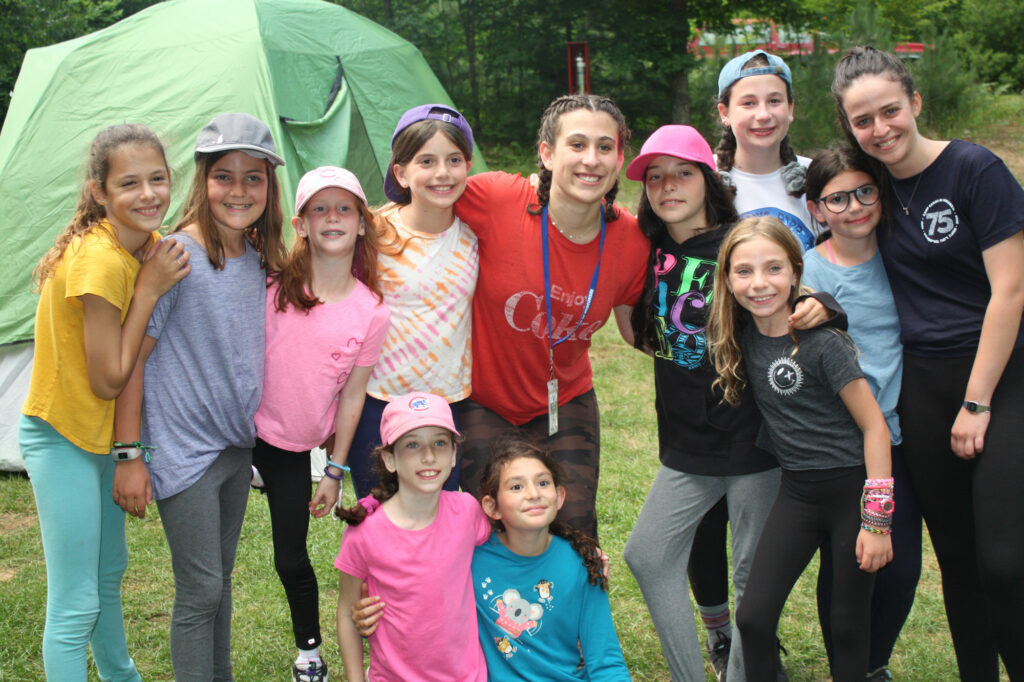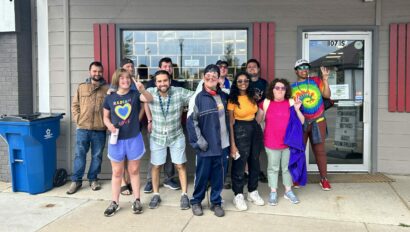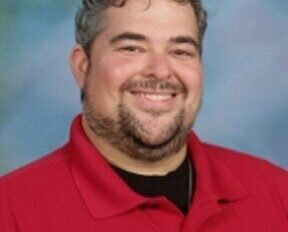
Dina Greenberg, Ramah Day Camp Assistant Director
Dr. Audra Kaplan, Interim Director of Community Care and Inclusion
Creating an inclusive and supportive community is at the core of who we are – articulated as one of the four core values of Ramah Day Camp and Camp Ramah in Wisconsin and affirmed in the ways that we have created camps that are accessible, welcoming, and intentional for all campers. At Ramah Day Camp and Camp Ramah we continue to invest in the mental, emotional, social, spiritual, behavioral, and physical health of our community.
Universal Design
We apply the idea of universal design to guide our pre-camp planning and decision making. Universal design was originally developed for the design of products and buildings, and is now implemented regularly in schools and recreation. The goal of universal design is to build spaces and programming that is both accessible to individuals with disabilities and can be used by all.
At camp we apply these concepts as we think about how campers navigate through their day, specifically the modifications we can make that will benefit a specific camper’s support need while also benefiting a broader group of campers. As an example, in the past we may have identified a camper who would benefit from a visual schedule. More recently, we realized that many campers and staff would benefit from this tool as well. Individuals who are anxious to know what is happening next, those who like to plan ahead, those who need help organizing their day, and those who struggle with memory all benefit from the support that a visual schedule provides. At Camp Ramah in Wisconsin, we now create and provide visual schedule stickers that campers and staff can put on their water bottles. At Ramah Day Camp, parents, campers, and staff are provided with daily visual schedules that are reviewed each morning. This simple, intuitive solution allows for a camper who requires support to blend in while also providing a broad support tool across camp.
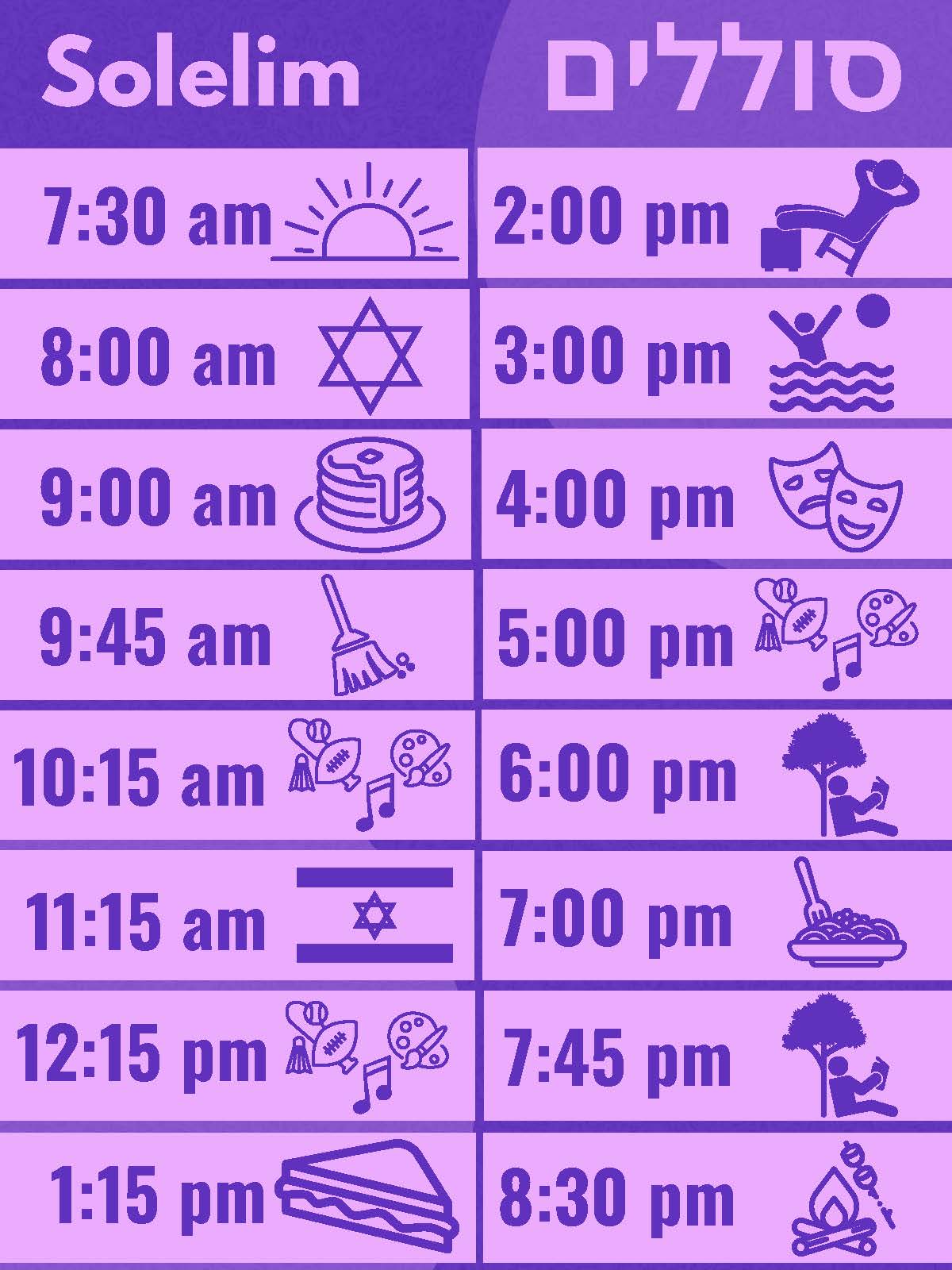
Another example at camp that uses the simple and intuitive approach of universal design, is pairing auditory instruction with visual support in speciality areas. This is helpful for campers with hearing impairments or difficulty focussing, but also supports learning for all campers. This is especially true in getting campers’ attention with a “5 more minutes” sign when they are actively enjoying swimming in the pool or lake.
Intentional Spaces
Camp Ramah in Wisconsin, with the support of the Yashar Initiative from the Foundation for Jewish Camp, redesigned our Sports Camp safer surfaces, adjustable sports equipment, various court sizes and a natural playscape which promotes creativity and cooperative play. All of these new features allow campers with a range of coordination, sensory demands, and mobility challenges the ability to access and enjoy this central feature of the campus. Accessible play promotes social connection and developing confidence for campers with and without disabilities, these newly designed spaces maximize the usages for all campers.
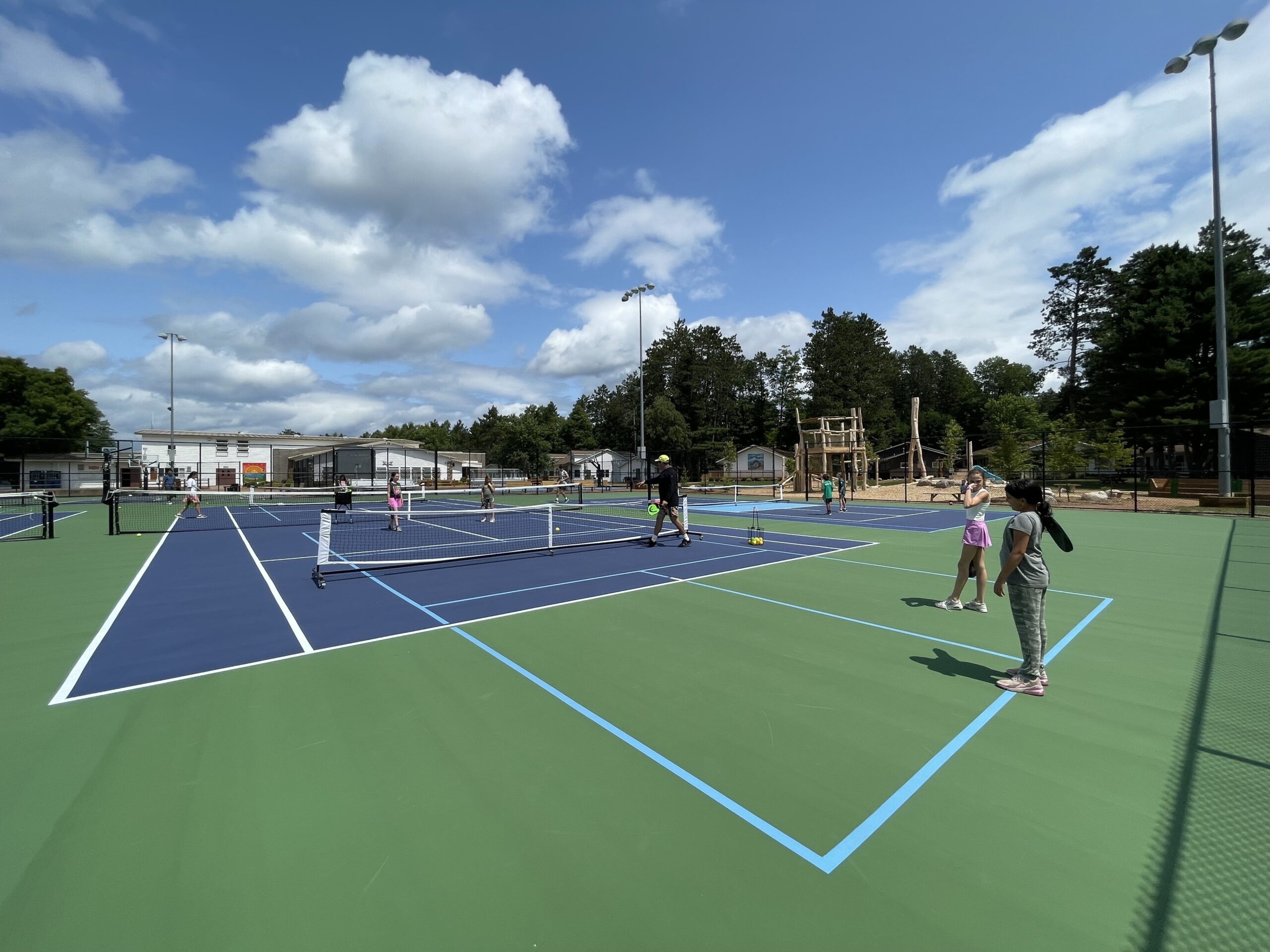
Camp Ramah in Wisconsin and Ramah Day Camp have created spaces that allow for sensory breaks and time for campers and staff to recharge and refuel. These spaces, which were originally developed for campers with Autism Spectrum Disorder, have been beneficial to any camper who is feeling overwhelmed and needs a short break before rejoining their group. This small, yet impactful accommodation, allows for both campers and staff members to be successful throughout the camp day.
Supporting An Increasingly Diverse Camp Community
Both camps include campers with a range of support needs, including anxiety, depression, Autism Spectrum Disorder, ADHD, sensory disorders, executive functioning challenges, and guidance with social skills. We take the time to get to know our campers and families before camp, and partner with parents and guardians to develop camper support plans. Utilizing the concepts of universal design, we are able to meet a wider range of support needs in an integrated fashion. As part of the continuum of support, our camps prioritize hiring staff with mental health and education backgrounds who are able to provide a higher level of camper support. At Ramah Day Camp, our partnership with Keshet allows for campers to receive one to one support so that a child with higher support needs can be at camp with their peers. At Camp Ramah in Wisconsin, our Shiluv inclusion program and camper care team includes mental health professionals, educators, behavior therapists and medical staff who work together to support campers’ range of needs.
Camp is a place for a child to grow from experience, learn from trial and error, find joy in trying new things, and connect to friends and Jewish community. By providing intentional structure and meaningful support for all campers, we are creating a community that can continue to flourish and thrive.
